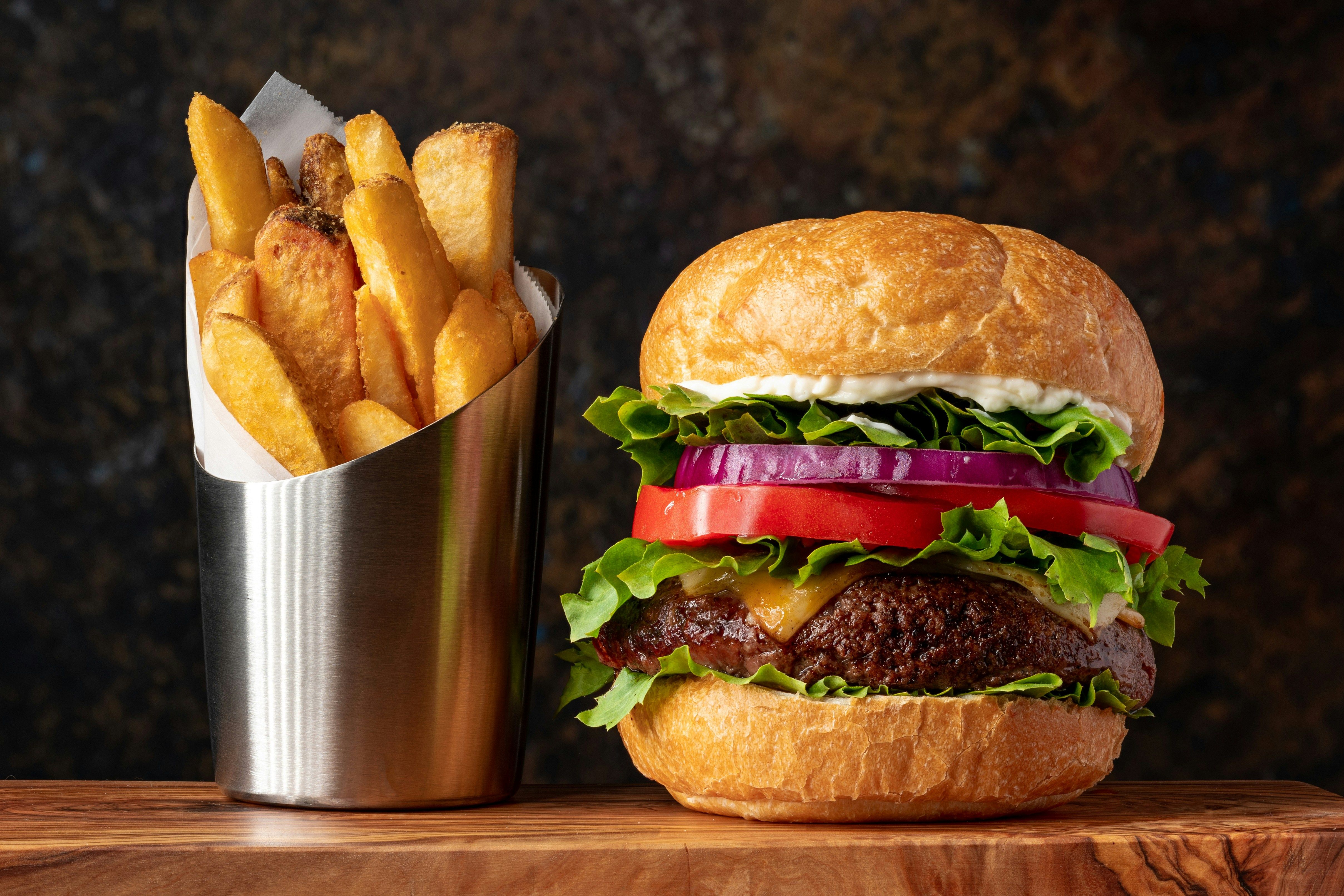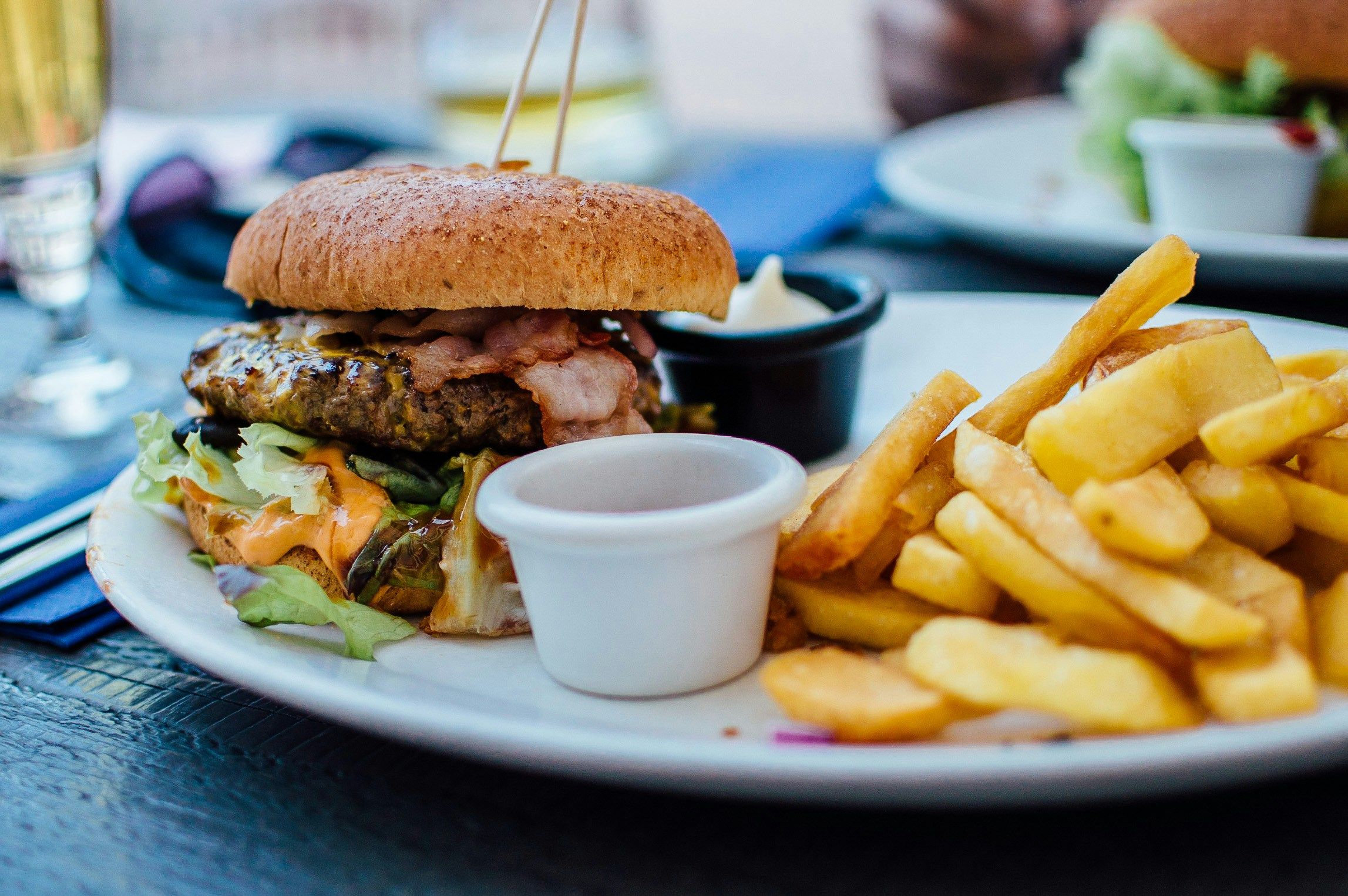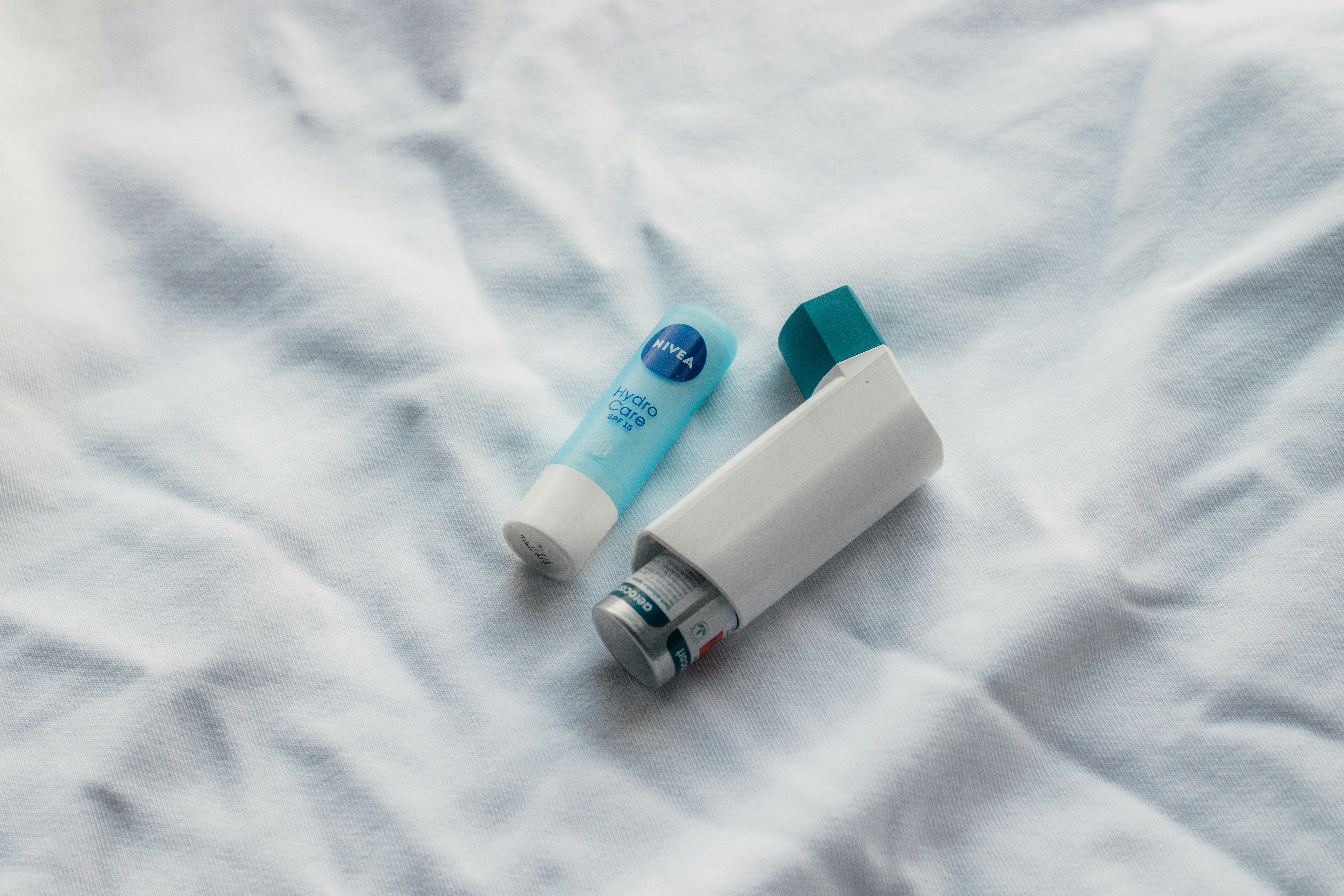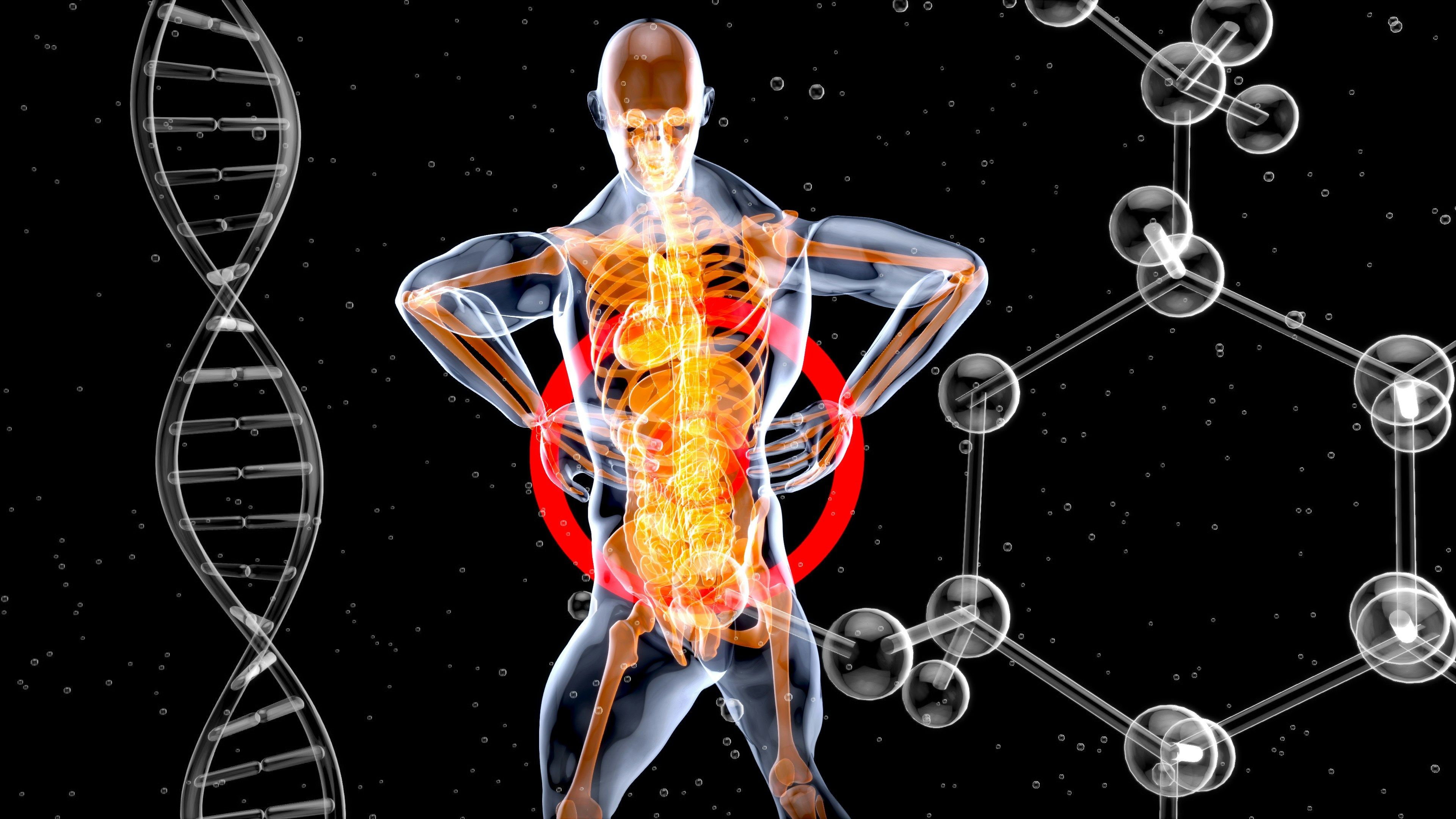Health

Potential Breakthrough in Alzheimer's Disease Emerges
Millions of families worldwide are impacted by Alzheimer's disease, a devastating neurodegenerative condition. Today, we bring a glimmer of hope!
Researchers are reporting promising results from early clinical trials for a new drug candidate targeting Alzheimer's disease. This drug aims to slow the progression of the disease by tackling the buildup of plaque in the brain, a hallmark of Alzheimer's.
What This Means:
While further research is necessary, this discovery offers significant hope for the future of Alzheimer's treatment. If successful, this new drug could potentially:
Slow cognitive decline in patients with Alzheimer's disease.
Improve quality of life for patients and their families.
Pave the way for further advancements in Alzheimer's research.
Important to Remember:
Drug development is a long and rigorous process. This promising candidate may take years before becoming a widely available treatment.
Clinical trials are essential to confirm the drug's safety and effectiveness.
Looking Forward:
This news is a significant step forward in the fight against Alzheimer's disease. Researchers worldwide are dedicated to finding a cure for this debilitating condition. Stay tuned for future updates as this groundbreaking research progresses!

Feeling Like a Fraud? You're Not Alone: Understanding Imposter Syndrome
Have you ever achieved something great, but still felt like you don't deserve the recognition? Do you constantly worry that someone will discover you're a "fake" and expose your incompetence? If so, you might be experiencing imposter syndrome.
What is Imposter Syndrome?
Imposter syndrome is a psychological phenomenon where people doubt their accomplishments and fear being exposed as a fraud. Despite evidence of their skills and qualifications, they believe their success is due to luck or external factors. This can lead to feelings of anxiety, self-doubt, and a persistent need to prove oneself.
Who Experiences Imposter Syndrome?
Imposter syndrome can affect anyone, regardless of age, gender, profession, or background. However, it's particularly common among high achievers who hold themselves to extremely high standards. People in creative fields, academics, and those new to a role are especially susceptible.
Signs You Might Have Imposter Syndrome:
Downplaying Achievements: You dismiss your successes as luck or due to others' help.
Attributing Success to External Factors: You believe you "got away with something" or were simply in the right place at the right time.
Fear of Exposure: You constantly worry that someone will discover you're not as competent as you seem.
The Perfectionist Trap: You set unrealistically high standards for yourself and feel like a failure when you don't meet them.
Need for Constant Validation: You constantly seek external validation to feel good about your accomplishments.
Overcoming Imposter Syndrome:
While imposter syndrome can be challenging, it's not a life sentence. Here are some ways to manage it:
Challenge Negative Thoughts: Acknowledge your accomplishments and recognize the skills and hard work you invested.
Focus on Progress, Not Perfection: Strive for improvement, not flawlessness. Celebrate small wins and learn from mistakes.
Talk About It: Sharing your feelings with a trusted friend, mentor, or therapist can provide support and perspective.
Focus on Your Strengths: Identify your skills and talents, and leverage them in your work or personal endeavors.
Celebrate Your Achievements: Take time to acknowledge your successes, big or small.
Remember:
Imposter syndrome is a common experience. Don't let it hold you back. By recognizing the signs, challenging negative thoughts, and focusing on your strengths, you can overcome these feelings and continue to achieve your goals.

Turning the Tables: New Method Converts CO2 Emissions into Clean Fuels with Near-Perfect Efficiency
This is exciting news for the fight against climate change! Researchers have developed a new method that can potentially revolutionize how we deal with CO2 emissions. This innovative approach promises to transform those harmful emissions into clean fuels, with near-perfect efficiency.
Capturing Carbon, not Storing It:
Current methods for dealing with CO2 emissions often involve capturing and storing the gas underground. While this prevents it from entering the atmosphere, it doesn't necessarily eliminate it. This new method takes a different approach – using captured CO2 as a raw material to create clean fuels.
Enzymes as the Secret Weapon:
The key to this process lies in enzymes, nature's tiny chemical factories. Scientists have isolated specific enzymes from bacteria that can act as catalysts, converting CO2 into usable fuels like formate or methanol. These fuels can then be used in existing infrastructure, powering vehicles and generating electricity.
A Sustainable Loop:
This new method offers a closed-loop system. CO2 emissions are captured, converted into clean fuels, and then burned, releasing the carbon back into the atmosphere – but only after it has been captured again, creating a continuous cycle.
Benefits Beyond Efficiency:
The near-perfect efficiency of this method is a major advantage. However, the benefits go beyond just maximizing fuel production.
Reduced Reliance on Fossil Fuels: By creating clean fuels from CO2, we can decrease our dependence on traditional fossil fuels, like oil and gas.
Cleaner Transportation: These clean fuels can be used in existing transportation systems, reducing emissions from vehicles.
Energy Security: This method offers the potential for a more sustainable and secure energy future.
Challenges Remain:
While the initial research is promising, there are still hurdles to overcome:
Scaling Up: The current process is still in its early stages, and scaling it up for large-scale production will require further development.
Cost-Effectiveness: Making this technology commercially viable will depend on bringing down the costs associated with the process.
A Beacon of Hope:
Despite the challenges, this new method offers a glimmer of hope in the fight against climate change. By transforming CO2 emissions into clean fuels, we can potentially create a cleaner and more sustainable future.

The Mystery of the Missing Cape: Why Adult ADHD Diagnosis Can Be Tricky
Attention deficit hyperactivity disorder (ADHD) is often thought of as a childhood condition, with images of bouncing-off-the-walls youngsters springing to mind. However, for many adults, ADHD isn't a cape they outgrow – it's a persistent companion that can significantly impact their daily lives. Here's why diagnosing adult ADHD can be more challenging than you might think:
Symptom Shifts and Subtler Signs:
The hyperactivity that's often a hallmark of childhood ADHD can manifest differently in adults. Fidgeting might be replaced by internal restlessness, and impulsiveness might show up in financial decisions or risky behavior. These subtler signs can be easy to miss, making diagnosis more difficult.
Comorbidity Cacophony:
Adults with ADHD often have other mental health conditions alongside it, such as anxiety or depression. These comorbid conditions can share some symptoms with ADHD, making it a challenge to untangle which condition is causing which symptom.
The History Enigma:
Diagnosing ADHD in adults often relies on childhood history. However, adults may not have clear memories from their younger years, or their childhood experiences might not have been documented well. Additionally, social stigma surrounding ADHD in the past might have meant it went undiagnosed in their childhood.
The Challenge of Retrospective Diagnosis:
Unlike some conditions with clear biological markers, diagnosing ADHD relies on a doctor's evaluation of a person's symptoms and how they impact their life. This can be subjective and leave room for misdiagnosis, especially if the doctor isn't familiar with the nuances of adult ADHD presentation.
The Elusive "Normal":
Defining "normal" can be tricky, especially for adults who have lived with ADHD symptoms their whole lives. They might not even realize their struggles are due to a specific condition, making it difficult for them to seek diagnosis.
What can be done?
Despite the challenges, there's hope! Increased awareness of adult ADHD is leading to better diagnostic tools and a growing number of healthcare professionals trained to identify it. Adults with concerns can seek out specialists experienced in diagnosing adult ADHD.
So, if you suspect you or someone you know might have adult ADHD, don't be discouraged by the diagnostic hurdles. Knowledge is power, and with the right information and support, you can navigate the path to a diagnosis and a happier, healthier life.

Beyond the Buzz: Unveiling the Science Behind Coffee's Benefits
Coffee, the elixir of life for many, isn't just a delicious pick-me-up. Recent studies suggest that this beloved beverage offers a surprising range of health benefits. Let's delve into the science and explore what that cup of joe might be doing for your body.
Brainpower Boost:
We all know coffee helps us feel more alert. The culprit? Caffeine, which blocks an inhibitory neurotransmitter in the brain, leading to increased alertness and improved cognitive function. Studies have shown that coffee consumption can enhance memory, focus, and reaction time.
Sharpened Physical Performance:
Coffee doesn't just boost brainpower; it can also improve physical performance. Caffeine increases adrenaline levels, which prepares your body for physical activity. Studies suggest coffee can enhance athletic endurance and delay fatigue during workouts.
Potential Disease Fighter:
The research is ongoing, but some studies suggest coffee consumption might be linked to a reduced risk of developing certain chronic diseases. These include type 2 diabetes, Parkinson's disease, and some types of cancer. The antioxidants and other beneficial compounds found in coffee might play a role in these potential benefits.
But Remember, Moderation is Key:
While coffee offers a surprising range of potential benefits, it's important to consume it in moderation. Excessive coffee intake can lead to anxiety, insomnia, and other health problems. The ideal daily intake varies depending on individual factors, but most experts recommend limiting yourself to 400 milligrams of caffeine per day, which is roughly 4 cups of brewed coffee.
So, the next time you reach for a cup of coffee, you can enjoy it knowing you're not just indulging in a delicious beverage, but potentially doing your body some good.
Do you have any coffee rituals or brewing preferences? Share your coffee stories in the comments below!

Food Addiction: Similarities to Drug Abuse Gain Traction Among Doctors
There's a growing movement among some doctors who argue that food addiction should be treated similarly to drug abuse. Let's delve into the reasons behind this claim:
The Similarities:
Compulsive Behavior: Both food addiction and drug abuse can involve compulsive behaviors that are difficult to resist, despite negative consequences.
Brain Chemistry: Studies suggest that both conditions can alter brain chemistry in ways that reinforce cravings and seeking out the substance (food or drug) despite potential harm.
Dopamine Connection: Both food and drugs can trigger the release of dopamine, a neurotransmitter associated with pleasure and reward. This can create a cycle of craving and seeking out the pleasurable experience.

The Potential Benefits of This Approach:
Improved Treatment Methods: By framing food addiction as a similar condition to drug abuse, it opens doors to exploring treatment methods that have proven successful in addiction recovery, such as cognitive behavioral therapy and medication-assisted treatment.
Increased Support: Acknowledging food addiction as a serious condition could lead to greater understanding, support groups, and access to specialized treatment programs.
Important Considerations:
Food is Necessary: Unlike drugs, food is essential for survival. This distinction adds complexity to treatment approaches.
Not Everyone Overeats: Overeating does not necessarily equal food addiction. There's a spectrum of eating behaviors to consider.
More Research Needed: While there are strong parallels, more research is required to fully understand the mechanisms of food addiction.
The Road Ahead:
The idea of classifying food addiction as similar to drug abuse is a controversial yet significant development in the field of addiction treatment. If further research strengthens the connection, it could pave the way for more effective interventions to help people struggling with compulsive overeating.

Feeling Lonely? Sugar Might Be Whispering Your Name (But Don't Listen!)
Life can get lonely sometimes. Whether it's moving to a new place, facing a breakup, or simply feeling disconnected from your social circle, those empty feelings can hit hard. But here's the surprising thing: loneliness might be driving you to the candy aisle, not the park.
Science Says Sugar Cravings Spike When You're Lonely
Recent research suggests a fascinating link between loneliness and intense cravings for sugary foods. Here's the gist:
Loneliness Disrupts Your Brain's Happy Place: Feeling connected to others is a basic human need. When you're lonely, it throws a wrench into your brain chemistry, potentially activating reward centers associated with pleasure-seeking behaviors.
Sugar as a Fake Friend: Sugary foods can trigger the release of dopamine, a feel-good neurotransmitter. This might explain why you crave those sugary treats when loneliness hits – it's your brain seeking a temporary mood boost.
Comfort (But Not Really): Sure, sugary snacks might offer a short-term escape from loneliness, but it's like a one-night stand – not a healthy long-term solution. In fact, excessive sugar intake can have negative health consequences.
Breaking Free from the Lonely Sugar Trap:
So, how do you ditch the sugar and embrace healthier ways to deal with loneliness? Here are some tips:
Find Your Tribe: Feeling connected is key! Join clubs, volunteer, or try activities that allow you to build positive social connections.
Healthy Coping Mechanisms: Exercise, spending time with loved ones, or pursuing hobbies you enjoy can all help combat loneliness and reduce cravings for sugary treats.
Talk It Out: Don't bottle up your feelings. Seek support from a trusted friend, family member, or therapist if loneliness feels overwhelming.
Remember, you're not alone in feeling lonely (even though it might feel that way). By understanding the connection between loneliness and sugar cravings, you can make healthier choices and prioritize your well-being.

The Body Cheers to Less Alcohol: Perks of Cutting Back on Booze
Cutting back on alcohol consumption can have a surprising number of positive effects on your body. Here's a breakdown of the potential benefits you might experience:
Improved Physical Health:
Liver Happy Dance: Your liver, the primary organ responsible for processing alcohol, gets a much-needed break. This can lead to reduced inflammation and improved liver function.
Stronger Heart: Excessive alcohol consumption can contribute to heart problems. Reducing your intake can lower blood pressure and decrease your risk of heart disease.
Weight Management Boost: Alcohol is calorie-laden, and heavy drinking can contribute to weight gain. Cutting back can help you manage your weight more effectively.
Enhanced Energy Levels: Alcohol can disrupt sleep patterns and leave you feeling sluggish. Reducing your intake can lead to better sleep quality and increased energy levels throughout the day.
Improved Immune System Function: Heavy drinking can weaken your immune system, making you more susceptible to illnesses. Cutting back can help your immune system function at its best.
Mental and Emotional Benefits:
Sharper Mind: Alcohol can impair cognitive function. Reducing your intake can improve your memory, focus, and overall mental clarity.
Reduced Anxiety and Depression: While alcohol might seem to alleviate stress in the short term, it can actually worsen anxiety and depression symptoms in the long run. Cutting back can lead to improved mood and emotional well-being.
Better Sleep Quality: As mentioned earlier, reduced alcohol consumption can improve sleep quality. This leads to feeling more rested and overall better mentally.
Appearance Perks:
Glowing Skin: Alcohol can dehydrate the skin, making it appear dull and promoting wrinkles. Cutting back can lead to more hydrated, youthful-looking skin.
Brighter Eyes: Alcohol can contribute to puffy eyes and dark circles. Reducing your intake can improve your eye health and leave you looking more refreshed.
Remember, everyone's body reacts differently. If you're concerned about your alcohol consumption, it's always best to consult with a doctor.
However, the potential benefits listed above paint a clear picture: reducing your alcohol intake can have a significant positive impact on your overall health and well-being!

Party Foul: Why Borg Drinks Can Be a Big Buzzkill
Summer vibes are in the air, and staying cool might seem to call for a refreshing "Borg" – a massive jug cocktail mixed with who-knows-what. But hold on to your koozies, because these homemade concoctions can be a recipe for disaster. Here's why Borg drinks are a serious health hazard:
Booze Blitz:
High Alcohol Content: Borgs are notorious for packing a serious punch. We're talking several standard drinks (think 12-17% ABV or more) crammed into a single gallon jug. Yikes!
Binge Drinking Danger: This high concentration makes it easy to consume a dangerous amount of alcohol in a short time. This puts you at major risk of alcohol poisoning, a potentially life-threatening condition.
Mystery Mix:
Unregulated Ingredients: Borgs are DIY delights, meaning the exact ingredients and proportions can vary wildly. You never really know what you're getting, and there might be more than just alcohol lurking in that jug.
Caffeine Confusion: Some recipes add flavor enhancers like caffeinated drinks. Mixing alcohol and stimulants like caffeine is a bad idea – it can be unpredictable and dangerous for your body.
The Price You Pay:
Alcohol Poisoning Nightmare: Consuming too much alcohol too quickly can lead to alcohol poisoning, with symptoms like confusion, vomiting, seizures, and even coma. Not a fun way to spend a night.
Long-Term Toll: Frequent Borg consumption can wreak havoc on your health, increasing the risk of liver damage, heart problems, and addiction.
Impaired Judgment: The high alcohol content can seriously mess with your judgment and coordination, putting you at risk of accidents and injuries.
Skip the Spill:
Pace Yourself: If you choose to drink alcohol, do so responsibly. Stick to standard-sized drinks and alternate them with water or non-alcoholic beverages.
Know Your Limits: Listen to your body and avoid exceeding your tolerance.
Explore Mocktails: There are tons of delicious and refreshing non-alcoholic drinks out there. You can still have fun and socialize without the risks associated with Borgs.
Spread the Word:
Educate Your Crew: Sharing the dangers of Borg drinks can help raise awareness among your friends and potentially prevent someone from getting hurt.
Remember, your health and safety come first. Make informed choices when it comes to alcohol consumption. Choose moderation or explore safer alternatives – ditch the Borg and enjoy a summer to remember!

Heatwave Woes: Children with Asthma More Prone to Hospital Visits
With scorching heatwaves gripping many regions, a new study raises concern for children with asthma. Researchers found a significant link between heatwaves and increased hospital admissions for children with asthma.
The Study's Findings:
Heatstroke's Not the Only Threat: The research, presented at the American Thoracic Society conference, suggests heatwaves can trigger asthma flare-ups in children, leading to hospitalization.
Daytime Heat Most Culpable: The study found a stronger association between daytime heatwaves and asthma hospitalizations compared to nighttime heatwaves.
Longer Heatwaves, Higher Risks: Interestingly, the study also suggests that the duration of the heatwave plays a role – longer heatwaves correlated with a higher risk of hospitalization.
Why the Heat Makes Breathing Difficult:
Hot and Humid Air: Hot weather can worsen asthma symptoms by making it harder to breathe. Hot, humid air is heavier and can irritate the airways.
Increased Allergens: Heatwaves can exacerbate allergy symptoms, which can also trigger asthma attacks.
Keeping Children Safe During Heatwaves:
Stay Hydrated: Encourage children to drink plenty of fluids to avoid dehydration, which can worsen asthma symptoms.
Limit Outdoor Activity: During peak heat hours, reduce strenuous outdoor activity, especially for children with asthma.
Air Conditioning is Your Friend: Air conditioning can provide a cool and comfortable environment for children with asthma.
Talk to Your Doctor: Discuss an asthma management plan with your doctor, especially if your child is sensitive to heat. This might involve adjustments to medication or an inhaler readily available.
The Importance of Awareness:
This study highlights the importance of awareness about the dangers of heatwaves for children with asthma. By taking precautions and managing asthma effectively, parents and caregivers can help keep children safe during hot weather.

Crack On or Crack Off? The Truth About Knuckle Cracking
We've all done it: that satisfying snap, often followed by a sigh of relief. But is knuckle cracking a harmless habit or a one-way ticket to arthritis city? Let's crack the case (pun intended) and separate myth from fact.
The Science (or Lack Thereof)
Here's the surprising truth: there's no definitive scientific evidence that knuckle cracking leads to joint damage or arthritis in healthy individuals. The popping sound you hear is simply a gas bubble collapsing in the synovial fluid that lubricates your joints.
Cracking Away Without a Care?
While occasional knuckle cracking seems harmless, there are a few things to consider:
The Annoyance Factor: Let's be honest, the sound can be grating for some people. Be mindful of your surroundings and avoid becoming the office knuckle cracker extraordinaire.
Habitual Crackers Beware: Constantly and forcefully cracking your knuckles might irritate the surrounding tissues. While long-term effects are unknown, it's always best to listen to your body. If it hurts, stop it!
The Real Culprits for Joint Health:
If you're truly concerned about keeping your joints healthy, focus on these proven strategies:
Maintain a Healthy Weight: Excess weight puts extra stress on your joints.
Move Your Body: Regular exercise strengthens the muscles that support your joints.
Fuel Your Body Right: A balanced diet rich in nutrients like calcium and vitamin D is essential for joint health.
So, Crack On or Crack Off?
The choice is yours! If it feels good and doesn't cause pain, the occasional knuckle crack probably isn't a cause for concern. However, prioritize healthy habits and listen to your body's signals. Remember, happy and healthy joints are the real prize!

Shaking Less Salt? Study Links High Sodium Intake to Increased Stomach Cancer Risk
Attention foodies with a heavy hand on the salt shaker! A recent study published in the journal Gastric Cancer has found a potential link between high sodium intake (adding salt to food) and an increased risk of stomach cancer.
The Salt Scare:
The Study's Findings: Researchers observed a 41% higher risk of stomach cancer in participants who regularly added salt to their food at the table compared to those who rarely or never did.
Cause and Correlation: It's important to note that this study establishes a correlation, not necessarily causation. Further research is needed to understand the underlying mechanisms.
Why This Matters:
Stomach Cancer Concerns: Stomach cancer is a serious health concern, and any potential risk factor deserves attention.
Sodium and Your Health: High sodium intake has already been linked to high blood pressure and other health problems. This study adds another layer to the conversation about sodium consumption.
What You Can Do:
Season Wisely: Explore flavorful herbs and spices to add depth to your dishes without relying heavily on salt.
Read Labels: Be mindful of sodium content in pre-packaged foods.
Talk to Your Doctor: If you have concerns about your salt intake or stomach cancer risk, consult with your healthcare professional.
This study isn't a reason to ditch salt entirely, but it highlights the importance of moderation. By being mindful of your sodium intake, you can potentially manage your overall health risk and still enjoy delicious food.

EU Investigates Facebook and Instagram: Are They Too Addictive for Children?
The European Union (EU) has set its sights on social media giants Facebook and Instagram, launching a formal investigation into their potential negative impacts on children's mental health and well-being.
What's the EU Concerned About?
Addictive Algorithms: The EU is concerned that Facebook and Instagram's algorithms, designed to keep users engaged, might be too effective. These algorithms could be creating a "rabbit hole" effect, where children get sucked into endless scrolling and lose track of time.
Exposure to Harmful Content: The investigation will also delve into the type of content children are exposed to. This includes concerns about content promoting depression, unrealistic body image expectations, or other potentially harmful influences.
Protecting the Youngest Users: The EU wants to ensure that underage children (below 13) are effectively blocked from accessing these platforms. Current safeguards might not be sufficient, raising concerns about children's privacy and online safety.
What Could This Investigation Lead To?
Depending on the findings, the EU could take various actions:
Regulations and Fines: The EU has strict data protection and privacy regulations. If Facebook and Instagram are found to be in violation, they could face hefty fines.
Changes to Algorithms: The investigation might pressure the platforms to modify their algorithms to be less addictive and promote healthier user behavior for children.
Age Verification Measures: The EU could push for stricter age verification methods to ensure children below the age limit are not accessing these platforms.
What Does This Mean for Social Media Platforms?
This investigation could have significant implications for social media companies. They might need to:
Prioritize Child Safety: Implementing stronger safeguards for children's online safety and well-being could become a top priority.
Transparency in Algorithms: Greater transparency regarding how algorithms work and the type of content they promote might be required.
Content Moderation: More robust content moderation measures might be needed to limit children's exposure to harmful content.
The Future of Social Media and Children
The EU's investigation is a step towards creating a safer online environment for children. It highlights the need for social media platforms to take more responsibility for their impact on young users. This could lead to a future where social media is a more positive and enriching experience for children.

Mental Health Awareness: Apps Can Help, But Can They Replace Therapy?
Tech for Mental Wellbeing? Mental health awareness is on the rise, and there's a growing trend of mental health apps offering support and resources. But can these apps replace traditional therapy?
The Rise of Mental Health Apps:
Convenience and Accessibility: Mental health apps offer a convenient and accessible way to access self-help tools, meditation exercises, and mood trackers. They can be a great starting point for people hesitant to seek traditional therapy.
Specific Issues: Many apps target specific mental health concerns like anxiety, depression, or sleep problems. They offer guided exercises and tools tailored to these issues.
Limitations of Apps:
Not a Replacement for Therapy: Mental health apps shouldn't be seen as a replacement for therapy with a qualified professional. Complex mental health issues often require personalized treatment plans that apps can't provide.
Privacy Concerns: Sharing personal information on mental health apps raises privacy concerns. It's important to choose reputable apps with strong data security practices.
Finding the Right Fit:
Apps as a Support System: Mental health apps can be a valuable tool alongside therapy, offering additional support and resources between sessions.
Consult a Professional: If you're struggling with your mental health, it's crucial to seek professional help from a therapist or counselor. They can provide a personalized diagnosis, treatment plan, and ongoing support.
Mental health matters. Don't hesitate to reach out for help if you need it. Mental health apps can be a useful addition to your well-being toolkit, but remember, they shouldn't replace professional therapy.

Processed Food Peril: Study Links Ultra-Processed Diets to Higher Mortality Risk
Attention foodies! A new study published in The BMJ warns that consuming high levels of ultra-processed foods could be linked to an increased risk of death. This large-scale, long-term study adds to the growing body of evidence about the connection between diet and overall health.
What Exactly Are Ultra-Processed Foods?
These aren't your everyday fruits and veggies. Ultra-processed foods are industrial formulations often loaded with ingredients like added sugars, unhealthy fats, and artificial flavors and colors. Think sugary drinks, instant noodles, packaged snacks, and processed meats like hot dogs and deli slices.
The Study's Findings:
Researchers at Harvard University tracked the eating habits of over 100,000 US adults for more than 30 years. They found that those who consumed the most ultra-processed foods (averaging 7 servings per day) had a slightly higher risk of death from any cause compared to those who ate the least (averaging 3 servings per day). Specifically:
4% Increased Risk: The study suggests a 4% increase in overall mortality risk for those with the highest ultra-processed food intake.
Focus on Specific Categories: The study also highlights that certain types of ultra-processed foods might be more concerning than others. Ready-to-eat processed meats, sugary drinks, and highly processed breakfast cereals were linked to the strongest associations with increased mortality risk.
Important Considerations:
Correlation vs. Causation: The study establishes a correlation but doesn't definitively prove causation. Other factors like overall diet quality, lifestyle habits, and socioeconomic status could also play a role in mortality risk.
Moderation is Key: An occasional indulgence in ultra-processed foods might not be detrimental. However, the study suggests limiting them for better long-term health.
What Can You Do?
Read Food Labels: Become a label-reading pro! Identify ultra-processed foods by looking for long ingredient lists with added sugars, unhealthy fats, and artificial additives.
Focus on Whole Foods: Prioritize fresh fruits, vegetables, whole grains, lean proteins, and healthy fats in your diet.
Cook More at Home: This gives you control over the ingredients in your meals.
Small Changes Make a Big Difference: Start by making small swaps. Replace sugary drinks with water, opt for fresh fruit instead of processed snacks, and choose lean protein sources like grilled chicken or fish over processed meats.
Remember, a healthy diet is an investment in your long-term well-being. This study highlights the potential benefits of limiting ultra-processed foods and making conscious choices about what you eat.

The Power of Hydration: Why Water is Your Body's Best Friend
We all know we should drink water, but did you know that proper hydration is crucial for nearly every bodily function? Water is essential for everything from transporting nutrients to regulating body temperature. Despite its importance, many people don't drink enough fluids throughout the day. Let's explore the benefits of staying hydrated and how to make water your go-to beverage:
The Many Marvels of H2O:
Flushing Toxins: Water helps flush toxins and waste products from your body, promoting overall health and function.
Regulating Body Temperature: Water plays a vital role in regulating your body temperature, especially during exercise or hot weather.
Aiding Digestion: Proper hydration keeps your digestive system functioning smoothly, preventing constipation and other digestive issues.
Sharpening Your Mind: Dehydration can lead to fatigue, headaches, and difficulty concentrating. Staying hydrated keeps your brain sharp and focused.
How Much Water Do You Really Need?
While individual needs vary depending on factors like body size, activity level, and climate, the general recommendation is to drink around eight glasses of water per day. However, a more precise approach is to monitor your urine color. Pale yellow urine indicates good hydration, while darker colored urine suggests you need to drink more fluids.
Spicing Up Your Water Routine:
Infuse Your Water: Add slices of cucumber, lemon, or berries to your water for a refreshing and flavorful twist.
Sparkling Water with a Splash: Opt for unsweetened sparkling water with a squeeze of citrus for a bubbly and hydrating drink.
Herbal Tea Power: Herbal teas are a great way to increase your fluid intake and enjoy a variety of flavors. Just be mindful of added sugars in some commercially prepared teas.
Making Hydration a Habit:
Carry a Reusable Water Bottle: Keep a reusable water bottle with you throughout the day to serve as a constant reminder to sip on water.
Set Hydration Reminders: Utilize phone alerts or apps to remind yourself to drink water at regular intervals.
Eat Water-Rich Foods: Include plenty of fruits and vegetables in your diet, as they are a natural source of hydration.
Your Body Will Thank You for Staying Hydrated:
Water is essential for optimal health and well-being. By prioritizing hydration and making water your beverage of choice, you'll be giving your body the foundation it needs to thrive. So, ditch the sugary drinks, grab your reusable water bottle, and quench your thirst for a healthier you!
Do you have any tips for staying hydrated throughout the day? What are your favorite ways to flavor your water?

Nature's Therapy: The Healing Power of Spending Time Outdoors
Feeling stressed, sluggish, or disconnected? Take a cue from our ancestors and head outdoors! Spending time in nature has a surprising number of benefits for our physical and mental health. Let's explore the power of nature therapy, also known as ecopsychology, and how you can incorporate more green time into your life:
The Nature Cure:
Stress Reduction: Immersing yourself in nature can significantly reduce stress hormones like cortisol. The sights, sounds, and smells of the natural world have a calming effect on the mind and body.
Improved Mood: Studies suggest that spending time outdoors can boost mood, reduce symptoms of depression, and enhance feelings of happiness and well-being.
Enhanced Focus: Nature can improve cognitive function and attention span. Taking a walk in the park or spending time gardening can help clear your mind and boost your focus.
The Science Behind the Scenery:
Vitamin D Boost: Sunlight exposure triggers vitamin D production in our bodies, which is essential for bone health, immune function, and mood regulation.
Reduced Inflammation: Nature exposure can lower inflammation levels in the body, which is linked to various chronic diseases.
Improved Creativity: Spending time in nature can spark creativity and enhance problem-solving skills.
Finding Your Dose of Green:
Forest Bathing: Shinrin-yoku, or forest bathing, is the Japanese practice of spending time immersed in nature. Find a local park, forest, or even your own backyard and simply be present, soaking up the sights and sounds.
Embrace Outdoor Activities: Go for a hike, bike ride, or swim. Play outdoor sports, have a picnic in the park, or simply sit on a bench and observe your surroundings.
Start Small: Even small doses of nature can be beneficial. If you're short on time, take a walk during your lunch break or enjoy a cup of coffee on your balcony.
Nature is a Free Prescription for Well-Being:
Making spending time outdoors a regular habit is a simple yet powerful way to improve your physical and mental health. So, disconnect from technology, reconnect with nature, and experience the healing power of the green world around you!
Do you have any favorite outdoor activities? How does spending time in nature make you feel?

Fueling Your Body: The Importance of a Balanced Diet
Eating healthy isn't just about counting calories or following the latest fad diet. It's about nourishing your body with the essential nutrients it needs to function optimally and maintain good health. A balanced diet rich in fruits, vegetables, whole grains, lean proteins, and healthy fats provides the building blocks for a strong body and a sharp mind. Let's explore why a balanced diet is crucial for well-being and how to make healthy eating a sustainable part of your life:
The Recipe for Health:
Disease Prevention: A balanced diet rich in fruits, vegetables, and whole grains can help reduce your risk of chronic diseases like heart disease, diabetes, and certain types of cancer.
Energy Levels: The right combination of nutrients provides your body with sustained energy throughout the day. Processed foods and sugary drinks might give you a quick burst of energy, but they often lead to crashes and leave you feeling sluggish.
Weight Management: Eating a balanced diet helps you feel fuller for longer, reducing cravings and unhealthy snacking. This can contribute to maintaining a healthy weight or reaching your weight loss goals.
Building a Balanced Plate:
MyPlate: The MyPlate guide developed by the United States Department of Agriculture (USDA) is a helpful tool to visualize a balanced meal. Imagine your plate divided into sections: half filled with fruits and vegetables, one-quarter with lean protein, and the remaining quarter with whole grains.
Don't Forget Healthy Fats: Healthy fats from sources like avocados, nuts, and olive oil are essential for nutrient absorption, hormone regulation, and brain health.
Limit Processed Foods: Processed foods are often high in unhealthy fats, sodium, and added sugars. They can contribute to various health problems if consumed in excess.
Making Healthy Eating a Habit:
Plan Your Meals: Planning your meals and snacks for the week can help you make healthy choices and avoid unhealthy temptations.
Cook More at Home: Cooking at home gives you more control over the ingredients in your meals. Experiment with healthy recipes and find dishes you enjoy.
Read Food Labels: Pay attention to serving sizes and nutrition information on food labels. Be mindful of added sugars, sodium, and unhealthy fats.
A Balanced Diet is an Investment in Your Health:
Eating a balanced diet is an investment in your physical and mental well-being. By nourishing your body with the right nutrients, you can feel your best, prevent chronic diseases, and maintain a healthy weight. Remember, healthy eating doesn't have to be complicated or restrictive. Focus on making small, sustainable changes and enjoy the journey towards a healthier you!
Do you have any tips for maintaining a balanced diet? What are your favorite healthy meals or snacks?

The Mind-Body Connection: How Meditation Can Improve Your Health
In our fast-paced world, finding moments of calm and relaxation can feel like a luxury. But what if there was a simple practice that could reduce stress, improve focus, and even boost your physical health? Enter meditation, an ancient practice that's gaining traction in the modern world for its well-documented benefits. Let's explore how meditation can help you achieve a sense of inner peace and improve your overall well-being:
The Power of Mindfulness:
Stress Reduction: Meditation promotes relaxation and mindfulness, helping to quiet the constant chatter of the mind and easing feelings of anxiety and stress.
Improved Focus: Regular meditation practice can enhance your ability to focus and concentrate, reducing distractions and improving cognitive performance.
Emotional Regulation: Meditation can equip you with tools to manage emotions in a healthy way, increasing your emotional resilience and reducing reactivity.
The Science Behind the Serenity:
Brain Benefits: Studies suggest that meditation can increase gray matter in the brain regions associated with learning, memory, and emotional regulation.
Physical Effects: Meditation can lower blood pressure, improve sleep quality, and even boost the immune system's response.
Getting Started with Meditation:
Find a Quiet Space: Locate a quiet and comfortable place where you won't be interrupted. You can sit on a chair or meditation cushion, whatever feels comfortable for your body.
Focus on Your Breath: Close your eyes or soften your gaze, and focus on your breath. Feel the sensation of your breath entering and leaving your body.
Acknowledge Wandering Thoughts: It's natural for your mind to wander. Don't judge yourself; simply acknowledge the thought and gently bring your focus back to your breath.
Start Small: Aim for just a few minutes of meditation each day. As you become more comfortable, you can gradually increase the duration of your practice.
Meditation Apps and Resources:
There are numerous meditation apps and online resources available to guide you through the process. Meditation groups or classes can also offer a supportive environment to learn and practice.
Remember, meditation is a practice, not a perfect state of being. Be patient with yourself and enjoy the journey towards a calmer, more mindful you.
Have you tried meditation? What are your experiences with this practice?

Laughter is the Best Medicine: The Link Between Humor and Health
Laughter truly is the best medicine! It's not just a cliché; there's a growing body of research that suggests humor and laughter have a surprising number of health benefits. Let's delve into the power of laughter and explore ways to incorporate more humor into your life:
The Laughter-Health Connection:
Stress Relief: Laughter triggers the release of endorphins, our body's natural feel-good chemicals. These endorphins help reduce stress hormones like cortisol, leading to feelings of relaxation and well-being.
Immune System Boost: Laughter may increase the production of immune cells that help fight off illness. A good chuckle might not cure the common cold, but it could give your immune system a helpful boost.
Pain Management: Laughter can elevate your pain threshold and even reduce the perception of pain. This can be helpful for people managing chronic pain conditions.
Finding Your Funny Bone:
Spend Time with Funny People: Surround yourself with people who make you laugh. Watch stand-up comedy, funny movies, or sitcoms.
Embrace Playfulness: Don't take yourself too seriously! Find activities that bring you joy and laughter, whether it's playing games with friends, dancing around your living room, or spending time with a playful pet.
Read Comics or Funny Articles: Laughter can come in many forms. Reading humorous stories, comics, or memes can be a quick and easy way to get your daily dose of humor.
The Laughter Prescription (with No Side Effects):
Make Laughter a Habit: Just like any other healthy habit, incorporate humor into your daily routine. Start your day with a funny comic strip, watch a funny clip during your lunch break, or end your day with a lighthearted show.
Share the Laughter: Laughter is even more beneficial when shared with others. Tell jokes to your friends and family, or watch a funny movie together.
Don't Force It: If you're not feeling particularly funny, that's okay. Forcing laughter can negate the benefits. Focus on activities you genuinely enjoy and find humorous.
So, lighten up, laugh a little, and watch your stress melt away! Incorporating humor into your life is a simple yet powerful way to boost your mood, improve your health, and maybe even add a few extra years to your life (with plenty of laughter along the way)!
What are your favorite ways to incorporate humor into your life?

The Power of Sleep: Recharge Your Body and Mind
We all know sleep is important, but did you know it plays a vital role in both physical and mental health? Getting enough quality sleep allows your body to repair itself, recharge your cognitive function, and even boost your mood. Let's explore the benefits of a good night's sleep and how to develop healthy sleep habits:
The Benefits of Catching Those Zzz's:
Physical Restoration: During sleep, your body repairs tissues, strengthens muscles, and boosts the immune system, making you better equipped to fight off illness.
Cognitive Enhancement: Sleep is essential for memory consolidation and learning. A well-rested brain can process information more efficiently, improve focus, and enhance creativity.
Emotional Wellbeing: Sleep deprivation can negatively impact your mood, making you more susceptible to stress, anxiety, and irritability. Getting enough sleep can promote emotional resilience and improve your overall well-being.
Creating a Sleep Sanctuary:
Develop a Relaxing Routine: Establish a relaxing bedtime routine that signals to your body it's time to wind down. This could include taking a warm bath, reading a book, or practicing light stretches.
Optimize Your Sleep Environment: Ensure your bedroom is dark, quiet, and cool. Invest in blackout curtains, an earplug mask, and comfortable bedding to create an ideal sleep environment.
Power Down Before Bed: Avoid screen time (phones, laptops, TVs) for at least an hour before bed. The blue light emitted from electronic devices can disrupt your sleep cycle.
Sleep Challenges and Solutions:
Stressful Thoughts: If racing thoughts keep you up at night, try journaling before bed to clear your mind. Relaxation techniques like deep breathing or meditation can also help.
Inconsistent Sleep Schedule: Try to go to bed and wake up at consistent times each day, even on weekends. This helps regulate your body's natural sleep-wake cycle.
Lack of Exercise: Regular physical activity can improve sleep quality. However, avoid strenuous workouts too close to bedtime, as they can be stimulating.
Making Sleep a Priority:
Prioritizing sleep is an investment in your overall health and well-being. By creating healthy sleep habits and addressing any underlying sleep disturbances, you can unlock the power of sleep and wake up feeling refreshed, energized, and ready to take on the day!
Do you struggle with getting enough sleep? What tips have helped you improve your sleep quality?

Sunshine and Sanity: The Power of Vitamin D for Your Mood
Feeling a bit down? Maybe sunshine can help! Vitamin D, often referred to as the "sunshine vitamin," is essential for our overall health and well-being, and even plays a role in mood regulation. Let's explore the mood-boosting benefits of vitamin D and how to ensure you're getting enough:
The Sunshine Connection:
Vitamin D Production: Our bodies naturally produce vitamin D when exposed to sunlight. The ultraviolet B (UVB) rays from the sun trigger vitamin D synthesis in our skin.
Impact on Mood: Studies suggest a link between low vitamin D levels and symptoms of depression. Increasing vitamin D levels through sunlight exposure or supplementation may improve mood and reduce depressive symptoms.
Seasonal Shifts: Shorter days and less sunshine in winter can contribute to vitamin D deficiency and potentially worsen mood.
How to Get Your Daily Dose of Vitamin D:
Soak Up the Sun (Safely): Aim for 15-20 minutes of unprotected midday sun exposure (without burning) most days of the week.
Dietary Sources: Fatty fish, egg yolks, and fortified foods like milk and cereals can contribute to your vitamin D intake.
Supplements: Consider consulting your doctor about vitamin D supplements, especially if you live in a region with limited sunlight or have difficulty getting enough vitamin D through diet alone.
Important Reminders:
Sunburn Alert: Overexposure to sunlight can lead to sunburn and increase your risk of skin cancer. Limit sun exposure during peak hours (10 am to 4 pm) and always wear sunscreen.
Listen to Your Body: Everyone has different vitamin D needs. If you're concerned about your levels, consult your doctor for a blood test to determine the right course of action.
So, the next time you're feeling a little low, step outside and soak up some sunshine! Just remember sun safety and consult your doctor if you have any questions about vitamin D and your individual needs.
Do you notice a difference in your mood depending on the amount of sunlight you get? How do you ensure you get enough vitamin D?

Finding Fitness Fun: Video Games That Get You Moving
Exercise can feel like a chore, but what if you could combine it with the fun and engaging world of video games? Exergaming, also known as active video games, is a growing trend that uses games to motivate you to get moving. Let's explore some of the benefits and popular options to get your body and mind working together!
Why Exergaming is a Win-Win:
Makes Exercise Fun: Let's face it, traditional exercise routines can get repetitive. Exergaming injects fun and excitement into your workout, making you forget you're even exercising.
Boosts Motivation: The interactive nature of exergames and the ability to track progress can be highly motivating. Earning points, unlocking new levels, and competing with friends can keep you coming back for more.
Full Body Workouts: Exergaming offers a variety of options, from dance games that get your heart rate up to fitness adventures that engage your entire body.
Popular Exergaming Options to Explore:
Dance Games: Classic titles like "Just Dance" are a great way to get your heart pumping and improve your coordination. New iterations even incorporate fitness trackers for personalized workout goals.
Fitness Adventures: Games like "Ring Fit Adventure" for the Nintendo Switch gamify exercise with RPG elements. Explore fantastical worlds, battle enemies, and complete quests, all while getting a full-body workout.
VR Fitness: Virtual reality (VR) takes exergaming to a whole new level. Imagine yourself climbing mountains, kayaking down rapids, or even boxing in a virtual world. VR offers a truly immersive exercise experience.
Things to Consider Before You Play:
Intensity Levels: Choose exergames that match your fitness level. Start slow and gradually increase the intensity as you get stronger.
Listen to Your Body: Don't push yourself too hard, especially when starting. Take breaks when needed and avoid overexertion.
Not a Replacement for a Balanced Routine: While exergaming is a fantastic way to get active, it shouldn't replace a well-rounded fitness routine that incorporates strength training, flexibility exercises, and a healthy diet.
So, are you ready to turn playtime into exercise time? Exergaming offers a fun and engaging way to get active, improve your health, and maybe even have a blast while you're at it!
What are your thoughts on exergaming? Have you tried any fitness video games?

Can Your Fridge Actually Make You Sick? Unveiling the Truth About Food Spoilage and Storage
We've all been there - eyes widen in horror as you discover forgotten leftovers lurking in the back of the fridge. But is a quick sniff test enough to determine if that food is safe to eat, or are you setting yourself up for a stomach ache?
This post dives into the world of food spoilage and storage, exploring:
The Science Behind Spoilage: Bacteria love to munch on your food, and under the right conditions, they multiply rapidly. We'll explain how different factors like temperature and moisture affect this process.
Friend or Foe? Understanding Food Spoilage Signs: Not all spoilage is immediately obvious. Learn how to identify visual cues, texture changes, and off-odors that indicate your food has gone bad.
Fridge Organization for Food Safety: Your fridge isn't a magical preservation chamber! We'll share smart storage tips to maximize freshness and minimize the risk of contamination.
Myth Busting: Freezing vs. Refrigerating: Is freezing always the best option? We'll explore the pros and cons of different storage methods for various food items.
By understanding food spoilage and implementing safe storage practices, you can keep your fridge from becoming a breeding ground for harmful bacteria. This not only reduces the risk of foodborne illness but also helps prevent food waste!

Tossing and Turning? You Won't Believe What Sleep Does to Your Brain (and Body)!
We all know sleep is important, but in our fast-paced world, catching those precious Zzz's often gets pushed to the bottom of the to-do list. However, prioritizing sleep isn't just about feeling refreshed; it's essential for our overall health and well-being.
Here's why sleep is a superpower for your health:
Brainpower Boost: Sleep is when your brain consolidates memories, processes information, and flushes out toxins. Adequate sleep enhances focus, learning, and decision-making skills.
Physical Powerhouse: Sleep allows your body to repair tissues, build muscle, and strengthen your immune system, making you more resilient to illness and injury.
Mood Magic: Sleep deprivation can lead to irritability, anxiety, and even depression. Getting enough sleep helps regulate emotions and promotes a positive outlook.
Weight Management: Sleep hormones influence appetite regulation. Insufficient sleep can disrupt these hormones, leading to increased cravings and potential weight gain. ⚖️
So, how much sleep do you actually need? The National Sleep Foundation recommends:
Adults (18-64 years old): 7-9 hours per night
Teenagers (14-17 years old): 8-10 hours per night
Children (3-12 years old): 9-13 hours per night
Ready to unlock the power of sleep? Here are some tips for a better night's rest:
Establish a regular sleep schedule: Go to bed and wake up at similar times each day, even on weekends.
Create a relaxing bedtime routine: Take a warm bath, read a book, or listen to calming music before bed.
Optimize your sleep environment: Make sure your bedroom is dark, quiet, and cool.
Limit screen time before bed: The blue light emitted from electronic devices can disrupt sleep patterns.
Exercise regularly: Physical activity can improve sleep quality, but avoid strenuous workouts close to bedtime. ♀️
Investing in quality sleep is an investment in your health. By prioritizing rest, you'll be empowering your mind, body, and spirit to thrive!

The Hidden Costs of Smoking: Why It's Time to Ditch the Cigarettes
Smoking. It might seem like a stress reliever, a social activity, or even a bad habit you can't kick. But the truth is, smoking comes with a hidden price tag - one that impacts your health, your wallet, and even your loved ones.
Beyond the Cough: The Devastating Health Effects
Smoking isn't just about a bad cough. It's the leading cause of preventable death in the United States, linked to a terrifying array of health problems:
Cancer: Lung cancer isn't the only threat. Smoking increases your risk for cancers of the throat, mouth, esophagus, bladder, and more.
Lung Disease: Chronic obstructive pulmonary disease (COPD) makes breathing difficult and can significantly reduce your quality of life.
Heart Disease: Smoking damages your heart and blood vessels, leading to heart attacks, strokes, and peripheral artery disease.
Weakened Immune System: Smokers get sick more often and take longer to recover. It's a double whammy on your well-being.
The Financial Burden: Smoking is an Expensive Habit
Cigarettes aren't cheap. The cost of a pack a day adds up fast. But that's not all. Smoking-related medical expenses can be astronomical, straining your finances and potentially leaving you with debt.
Secondhand Smoke: Putting Others at Risk
The dangers of smoking aren't limited to the smoker. Inhaling secondhand smoke can cause serious health problems for those around you, including children and loved ones.
It's Never Too Late to Quit: Reap the Rewards
The good news? Quitting smoking, at any age, has significant benefits:
Improved Health: Your lungs start to heal, your risk of disease drops, and you'll have more energy and a sharper sense of smell and taste.
Save Money: Stop throwing money away on cigarettes and breathe easier (literally) knowing you're saving for the future.
Protect Your Loved Ones: By quitting, you're not just protecting yourself, you're creating a healthier environment for those around you.
Ready to Stub Out the Habit? Here's Help
Quitting smoking is a challenge, but you don't have to go it alone. There are resources available to help you succeed:
Nicotine Replacement Therapy (NRT): Patches, gum, lozenges, and sprays can help manage cravings.
Prescription Medications: Talk to your doctor about medications that can help reduce cravings.
Support Groups and Counseling: Connect with others who are quitting and get support from a therapist.
Taking that first step towards quitting is the hardest. But the benefits are worth it. Invest in your health, your wallet, and your loved ones. Make the choice to ditch the cigarettes and breathe easier.
